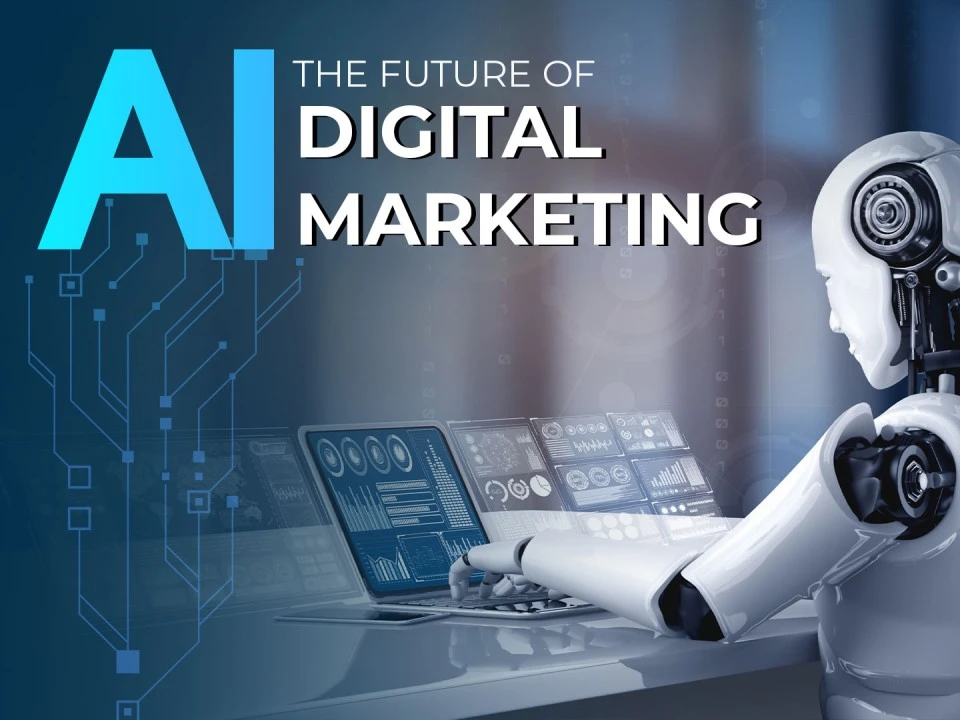
The digital marketing landscape in Pakistan is evolving rapidly. Driven by growing internet penetration and an increasingly tech-savvy population, the number of internet users in the country is expected to surpass 80 million by 2025. This surge presents a major opportunity for businesses. But a critical question arises: What is the future of Artificial Intelligence (AI) in digital marketing in Pakistan?
As brands work to stay ahead in a competitive market, they are turning to innovative technologies—especially AI—to deliver smarter campaigns, personalized customer experiences, and better engagement strategies. This article explores how AI is shaping digital marketing in Pakistan, covering its applications, benefits, challenges, and future potential.
AI-Powered Personalization and Customer Engagement
AI is revolutionizing how businesses connect with customers through hyper-personalized experiences. In Pakistan’s bustling e-commerce scene, platforms like Daraz and local brands are utilizing AI to analyze consumer behavior and deliver tailored content.
For instance, Foodpanda uses AI to track browsing habits and suggest personalized food deals, increasing user engagement and conversion rates. Social media platforms like Instagram and TikTok, both wildly popular among Pakistani youth, feed massive data into AI systems, enabling highly targeted and relevant advertising.
This level of personalization helps brands build stronger relationships with consumers, paving the way for long-term loyalty and trust.
Smart Chatbots: Enhancing Customer Support
AI-driven chatbots are becoming a key part of customer service strategies for Pakistani brands. Companies like Khaadi and Gul Ahmed have integrated chatbots into their websites to answer common queries about product availability, sizes, and ongoing offers.
These chatbots, powered by Natural Language Processing (NLP), provide quick and efficient support, improving customer satisfaction while reducing operational costs. As AI becomes more advanced, these bots will handle even more complex queries, transforming the way brands interact with customers online.
Campaign Optimization through AI Analytics
One of AI’s biggest strengths in digital marketing is campaign optimization. By using predictive analytics, companies can stay ahead of market trends and make data-driven decisions.
Take PriceOye, a Pakistani startup that uses AI to analyze price fluctuations and demand trends. This allows the brand to adjust marketing efforts and offer competitive prices. Additionally, AI tools analyze ad data from platforms like Google Ads and Meta, helping businesses identify top-performing keywords, optimal demographics, and the best time to launch ads.
AI also enables automated content creation. Tools like Jasper and Copy.ai produce SEO-optimized blog posts, captions, and more—an essential feature for small businesses that lack large marketing teams.
Furthermore, AI-driven A/B testing allows marketers to compare different ad creatives and ensure that only the most effective ones are shown to audiences. This data-first approach leads to better campaign results and a higher Return on Investment (ROI).
Challenges and Opportunities Ahead
Despite its promise, the widespread use of AI in Pakistan's digital marketing space is not without obstacles. Some key challenges include:
- Limited access to advanced AI infrastructure
- Shortage of skilled professionals
- High costs of AI tools
- Concerns around data privacy and customer trust
However, these challenges are gradually being addressed. Universities like NUST and LUMS are introducing AI-focused programs to develop a skilled workforce. Additionally, affordable AI solutions are becoming available for small and medium enterprises (SMEs), making adoption more feasible.
The rollout of 5G technology is another game-changer. It will boost real-time data processing and analytics, paving the way for dynamic video ads and highly responsive user engagement strategies. Moreover, as internet access expands into rural areas, AI can help brands reach untapped markets and drive inclusive digital growth.
Conclusion
The future of AI in digital marketing in Pakistan looks promising. With the ability to deliver personalized content, optimize campaigns, and improve customer interactions, AI is transforming how brands engage with their audiences.
While there are still challenges—particularly in infrastructure and skills—ongoing efforts in education and affordable tech access are paving the way for broader adoption. As more Pakistani businesses integrate AI into their strategies, the country will witness stronger consumer relationships and sustained business growth in the digital space.